Brightline opposition on Treasure Coast began almost as soon as the trains were proposed
Concerns about higher-speed trains speeding through the Treasure Coast began within days of All Aboard Florida filing its request for federal funding in March 2013.
Opposition arose almost immediately, with people worried about the company's plans to establish passenger rail service between Miami and Orlando. Over the years, lawsuits filed by Treasure Coast counties led to numerous delays in the railroad's proposed launch.
Long-awaiting Brightline train service between South Florida, Orlando starts next week
Brightline from Miami to Orlando: Everything to know about tickets, stops, pets, discounts
More than 10 years later, Brightline — formerly known both as All Aboard Florida and Virgin Trains USA — on Friday is to begin scheduled passenger service between Miami and the Orlando International Airport.
What's in a name?
It started as All Aboard Florida.
In early 2013, Coral Gables-based Florida East Coast Industries, a real estate and transportation company which owned and operated Jacksonville-based Florida East Coast Railway freight railroad, proposed a $1.5 billion passenger railroad service between Miami and Orlando.
All Aboard Florida submitted a $1.875 billion federal loan application in March 2013, later claiming the loan amount was changed to $1.6 billion. The loan was to split the project in two phases: $740 million for a 66.5-mile stretch from Miami to West Palm Beach; and $1.135 billion for 168.5 miles from West Palm Beach to Orlando.
In 2015, the company rebranded itself, changing its name to Brightline. Three years later, another name change made it Virgin Trains USA, following an investment deal with Virgin Group. That partnership ended in 2020, after Brightline claimed Virgin Group failed to provide the promised investment.
The company changed its name back to Brightline.
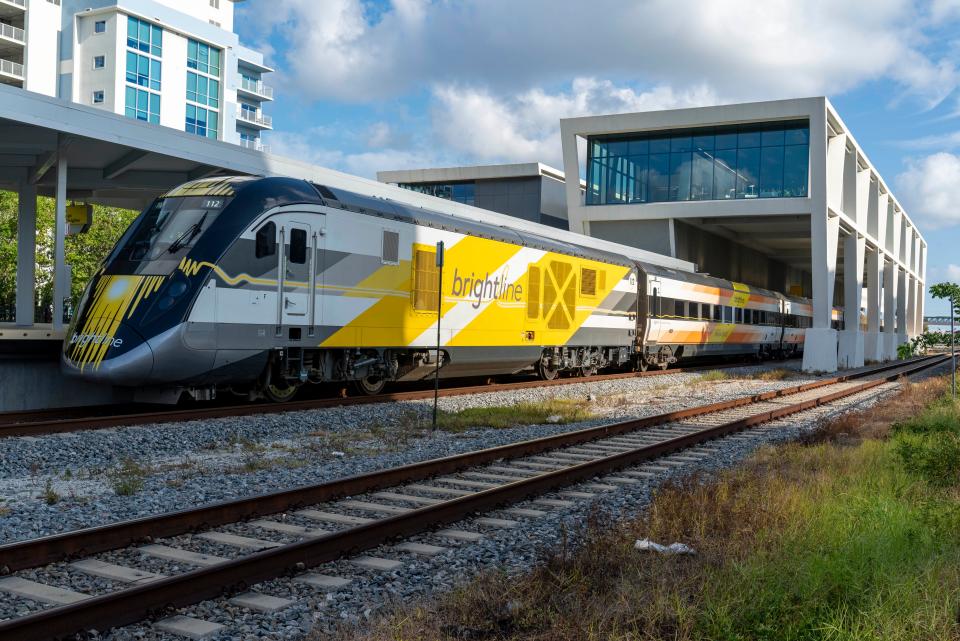
Opposition to the trains
Cities and counties along the route protested the idea of up-to-110-mph trains running through their communities. (Brightline trains will hit 125 mph in their final leg, along State Road 528, the Beachline Expressway between Cocoa and Orlando.) Citizen groups such as the Florida Alliance for Safe Trains and Citizens Against Rail Expansion in Florida formed to join joined the anti-Brightline efforts.
Among the loudest opponents were Indian River and Martin counties, which filed state and federal lawsuits against Brightline to derail the train. Of concern was the lack of local stations along the route, noise through residential neighborhoods, the environmental impact and safety.
In May 2013, the Martin County Commission addressed concerns in a letter to the Federal Railroad Administration, focusing in on the potential impact frequent closings of the St. Lucie River bridge would have on the marine industry and boaters. The commission requested information on who would pay for needed crossing upgrades and additional road crossing inspections.
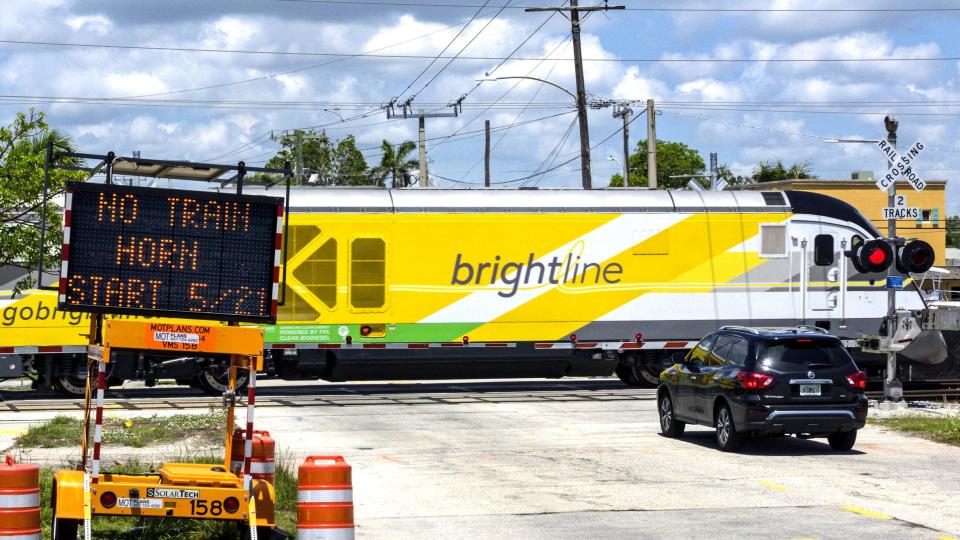
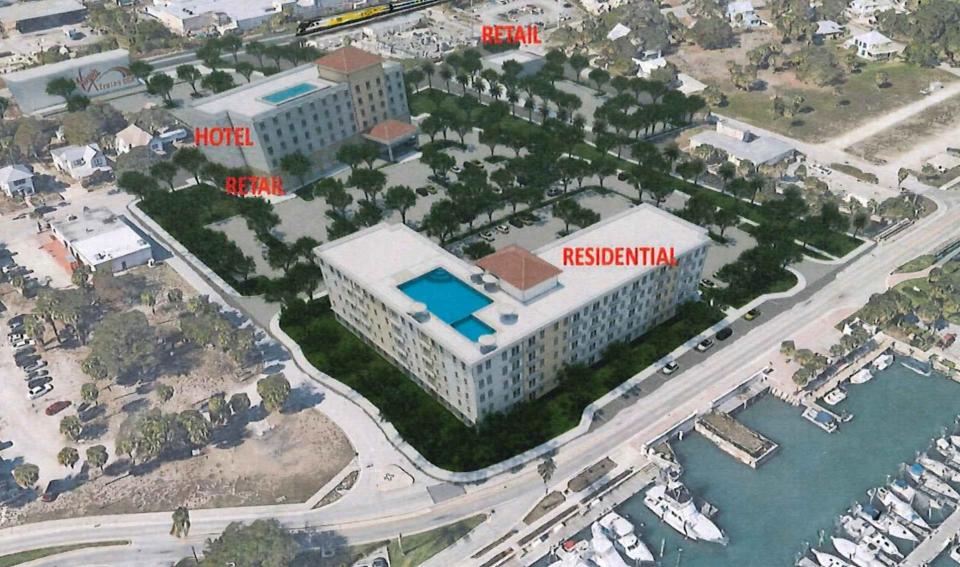
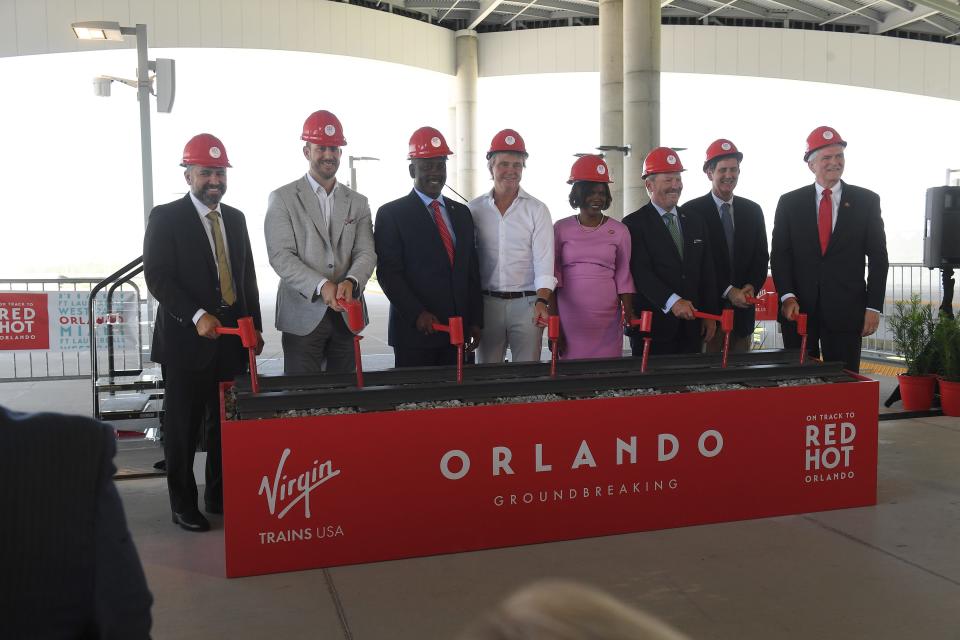
In 2014, then-U.S. Rep. Patrick Murphy (D-Jupiter) asked U.S. Transportation Secretary Anthony Foxx to require All Aboard Florida to address concerns about traffic and noise before approving the loan request. Murphy also asked then-Gov. Rick Scott to become involved.
All Aboard Florida characterized Murphy's complaints as unfair, repeatedly saying the rail service was taking no money from the state or federal government. For his part, Scott continually insisted publicly that Brightline was a private company and the state would not become involved.
Lawsuits settled
In 2018, Martin County and Citizens Against Rail Expansion ended their four-year legal battle against Brightline. The settlement included Brightline committing to $1 million in fencing upgrades, pedestrian overpasses and sidewalks and an eventual Treasure Coast station, although the local government would pay up to half the construction costs.
Indian River County approves settlement with Brightline, ends lawsuit over safety improvements
U.S. Supreme Court won't hear Indian River County's appeal of Brightline lawsuit
Indian River County, however, rejected the same settlement. It continued to pursue litigation until, in 2020, the County Commission decided it had exhausted all appeals and dropped its federal lawsuit. In 2021, the commission agreed to settle Indian River's state lawsuit against the railroad in exchange for about $31.6 million in safety improvements at the 32 rail crossings across the county.
Indian River County had spent about $5 million in legal fees fighting the project.
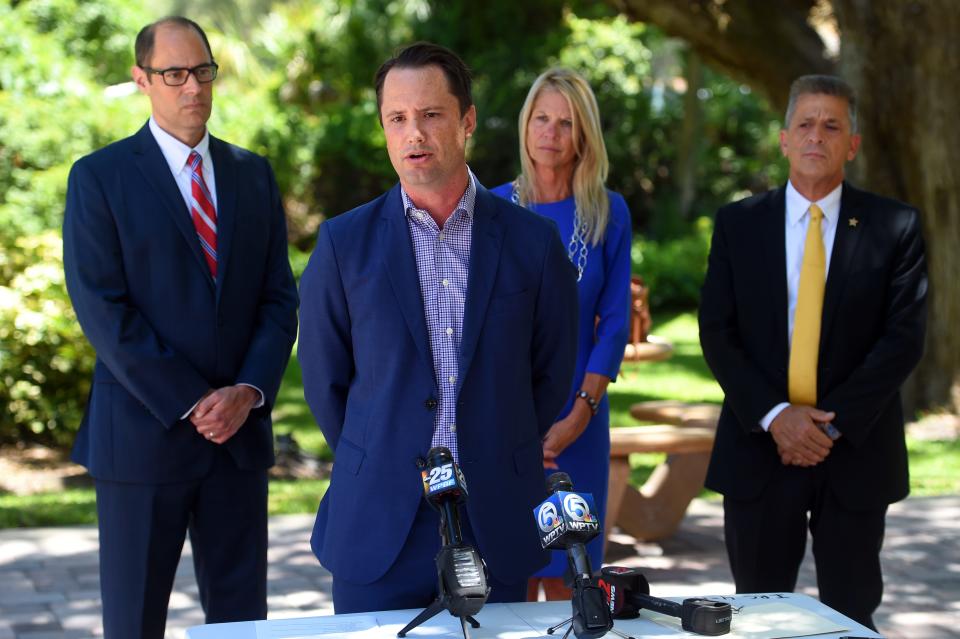
Construction and opening
Brightline began passenger service between West Palm Beach and Fort Lauderdale in January 2018, and extended service to Miami in May of that year.
The COVID-19 pandemic shut down of service between 2020 and November 2021.
Test runs of the Brightline trains on the Treasure Coast began in January 2022, as workers continued with safety upgrades at rail crossings. Those tests have continued through this month, with trains running up to 110 mph along the Treasure Coast.
Colleen Wixon is the education reporter for TCPalm and Treasure Coast Newspapers. Contact her at Colleen.Wixon@TCPalm.com. Follow her on Twitter @TCPalmWixon.
This article originally appeared on Treasure Coast Newspapers: Brightline's decade quest for higher speed rail filled with opposition


